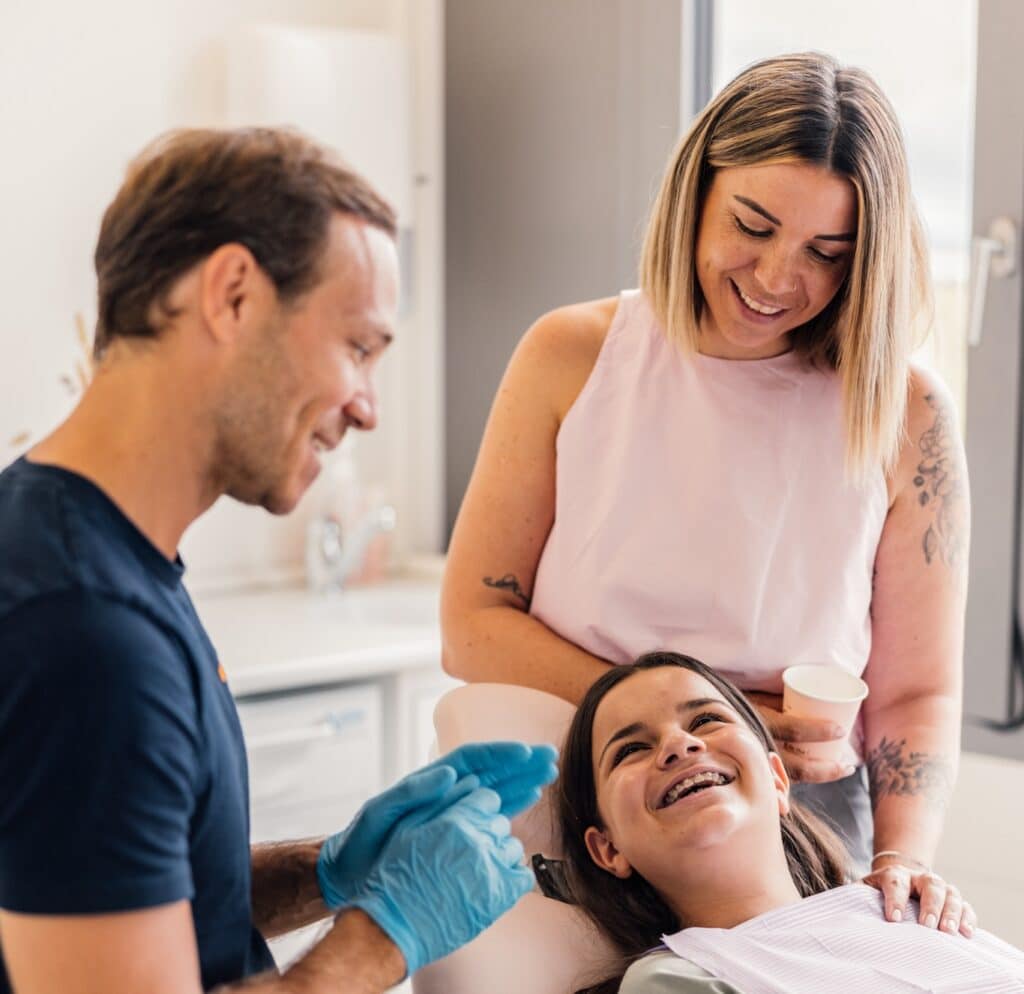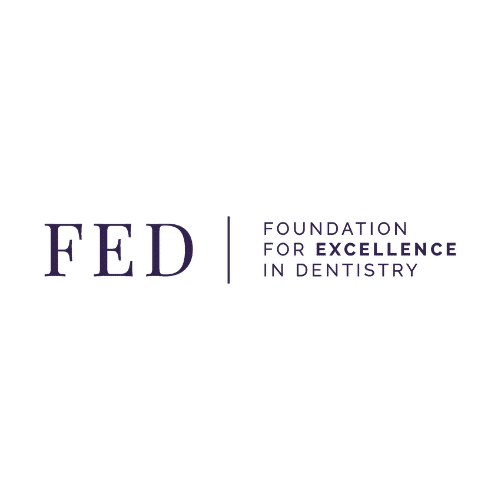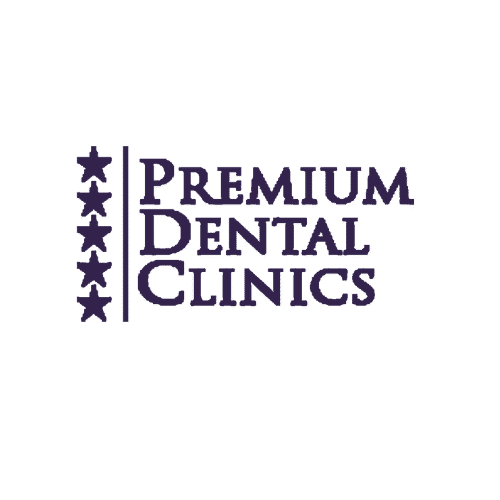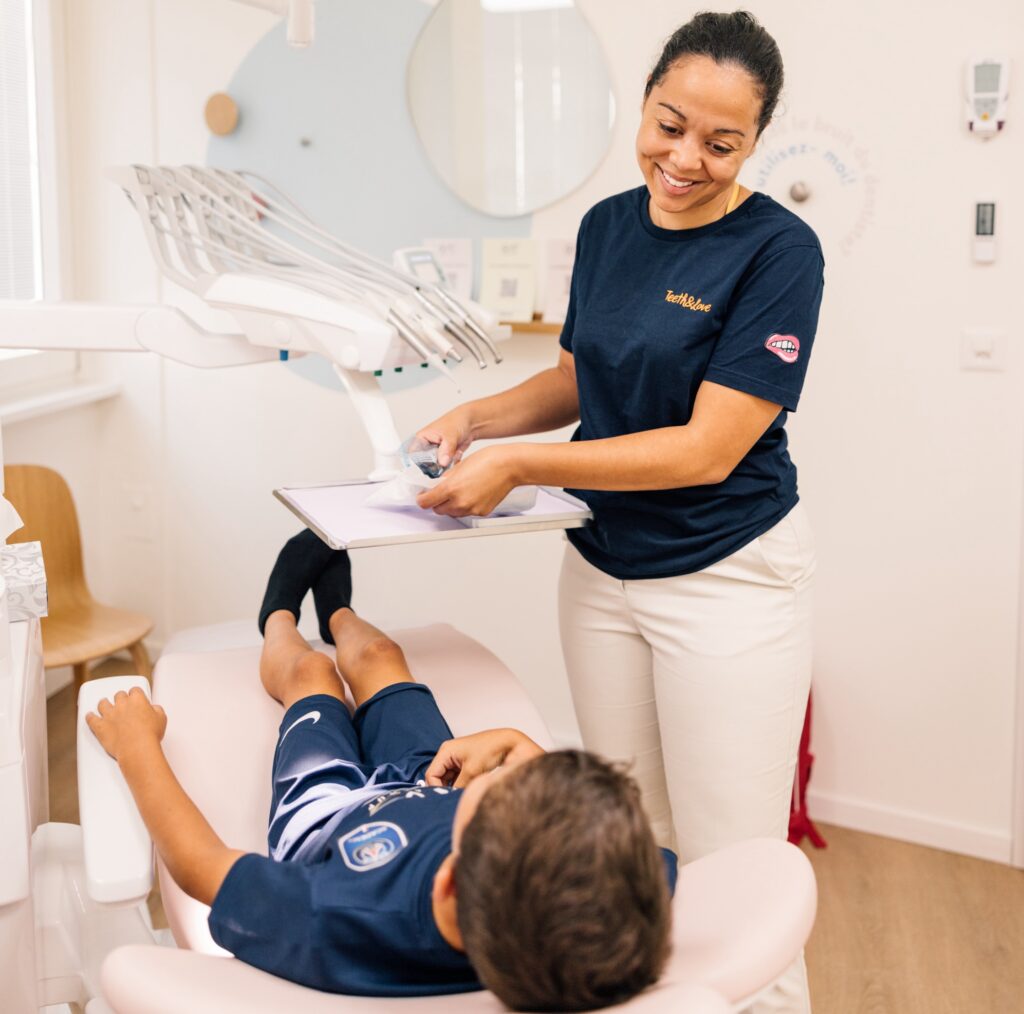Children’s dental check-up
At this age, we prefer ketchup to check-ups, but this consultation is very important!
At CHD, our priority is to ensure that every child we treat grows up with a healthy mouth, and receives the education they need to maintain good dental hygiene and prevent disease throughout their lives.
Bonus? That we’re able to make then see dentistry in a different, friendlier and more relaxed light!
Dental check-ups for your children at CHD
Whatever the age of your child, the priority remains their well-being: taking our time, introducing them to our instruments and listening carefully to their needs means making sure that your child has a positive experience that will help them feel at ease at their next appointment… and for the rest of their life!

Let’s face it: if there’s one job that parents fear more than their children, it’s the dentist. It’s up to us to change this image and dust off the profession so that your children (finally) feel at ease in the dental chair.
Whatever the age of your child, the priority remains their well-being: taking our time, introducing them to our instruments, listening to them, ensures that your child has a positive experience that will give them peace of mind for their next appointment… and for the rest of their life!

Rates
| Dental check-up for children + 2 check-up X-rays | 95.- |
Exact quotation before processing.
*You can also choose to pay in installments.
Let’s get involved in preventing child abuse.
5% of our fees for all check-ups are donated to Patouch, the Association for the Prevention of Child Abuse in French-speaking Switzerland.
Fair & transparent prices
We strive to maintain unbeatable value for money: reasonable prices, which have not changed since 2016, for quality of care that has earned us numerous awards:




Advice
The session ends with tailor-made advice from the dentist on good oral care practices for the child.
Communication is the starting point for any treatment with children: How can you carry out a treatment if the child is not put at ease by healthy communication? This depends on the practitioner’s patience and kindness.
Dr Ferrante, Dentist CHD Clinic Lausanne.
Next appointment
Depending on your child’s lifestyle, diet, the quality of their saliva and the condition of their teeth, the dentist will work with you to organise a personalised schedule of check-ups and scaling to maintain good oral health and achieve the goal of 0 cavities.
Our dental clinics
Find out more about dental check-ups for children
At what age and how often should a child visit the dentist?
Around age 3:
A first visit with the hygienist is recommended. This is a simple introduction to the dental environment, aiming to provide the child with a positive experience. The appointment is relatively short, as young children have limited attention spans.
The hygienist will count the child’s teeth and check the proper “fit” of the jaws. If necessary, a small tartar removal will be performed, and the teeth will be polished to prevent plaque buildup. If no cavities or issues are detected, there is no need to visit the dentist until the child turns 6. Instead, yearly visits to the hygienist will suffice. (If cavities or issues are found, the dentist will treat them and recommend annual hygienist visits thereafter.)
At age 6:
A dental check-up is recommended. At this age, permanent teeth start replacing baby teeth, and the first permanent molars begin to erupt.
If everything is fine, the child can continue yearly visits to the hygienist until age 9. If cavities are found, the dentist will treat them. Additionally, if jaw alignment problems are detected, the child may be referred to an orthodontist, who might recommend wearing a device for a few months to avoid prolonged treatment during adolescence.
At age 9:
This is the orthodontist stage. The child’s growth allows for proper alignment of the jaws—not just the teeth, but the bones themselves.
Orthodontic treatment at this stage doesn’t only enhance aesthetics but also ensures proper functional development: chewing, breathing, sinus development, saliva management, speech, etc.
After orthodontic treatment:
Once the orthodontic treatment is complete (if needed, as it’s not always necessary), the child should have a final dental check-up. If no cavities or issues are found, there will be no need for another dentist visit until age 16, when wisdom teeth will be assessed.
After that, routine visits to the hygienist should suffice for life.
Summary of visits:
– 3 years old: Hygienist, seen annually for life.
– 6 years old: Dentist, who may refer to an orthodontist for a short period.
– 9 years old: Orthodontist to address growth-related jaw alignment.
– 12 years old: Dentist, after orthodontic treatment concludes.
– 16 years old: Dentist, for wisdom teeth evaluation.
In an ideal scenario, following this schedule and focusing on preventive care with the hygienist means no additional dentist visits should be necessary. However, there is no “one-size-fits-all” approach to children’s dental care.
What happens if a child has cavities?
Baby teeth are critical for your child’s dental development and are more susceptible to cavities than permanent teeth.
If your child develops a cavity, it can cause pain, disrupt sleep, speaking, or eating. From a developmental standpoint, the bacteria from cavities in baby teeth can migrate to the permanent tooth and damage it before it even erupts! This phenomenon is also common in infections affecting baby teeth. Therefore, it is essential to treat cavities, even on baby teeth.
What foods and drinks harm children’s teeth?
Unsurprisingly, sugary drinks, candies, and foods that are too acidic, sticky, or hard to chew are the most damaging to a child’s teeth.
Avoid letting your child fall asleep with a bottle in their mouth, as milk or sugary drink residues can prevent saliva from doing its job properly.
What should I do if my child has a toothache?
If your child has a toothache (for example, due to teething), you can offer them an approved teething ring and provide a pain reliever (as advised by your dentist or pediatrician).
If the symptoms persist, worsen, or if the child develops a high fever, do not wait—contact your dentist promptly for further advice.